CHEMICAL IDENTIFICATION
-
RTECS NUMBER :
-
EM4900000
-
CHEMICAL NAME :
-
2-Butene, 1,4-dichloro-
-
CAS REGISTRY NUMBER :
-
764-41-0
-
LAST UPDATED :
-
199806
-
DATA ITEMS CITED :
-
25
-
MOLECULAR FORMULA :
-
C4-H6-Cl2
-
MOLECULAR WEIGHT :
-
125.00
-
WISWESSER LINE NOTATION :
-
G2U2G
HEALTH HAZARD DATA
ACUTE TOXICITY DATA
-
TYPE OF TEST :
-
LD50 - Lethal dose, 50 percent kill
-
ROUTE OF EXPOSURE :
-
Oral
-
SPECIES OBSERVED :
-
Rodent - rat
-
DOSE/DURATION :
-
89 mg/kg
-
TOXIC EFFECTS :
-
Details of toxic effects not reported other than lethal dose value
-
TYPE OF TEST :
-
LCLo - Lowest published lethal concentration
-
ROUTE OF EXPOSURE :
-
Inhalation
-
SPECIES OBSERVED :
-
Rodent - rat
-
DOSE/DURATION :
-
62 ppm/4H
-
TOXIC EFFECTS :
-
Details of toxic effects not reported other than lethal dose value
-
TYPE OF TEST :
-
LD50 - Lethal dose, 50 percent kill
-
ROUTE OF EXPOSURE :
-
Oral
-
SPECIES OBSERVED :
-
Rodent - mouse
-
DOSE/DURATION :
-
190 mg/kg
-
TOXIC EFFECTS :
-
Behavioral - muscle weakness Behavioral - ataxia Lungs, Thorax, or Respiration - respiratory depression
-
TYPE OF TEST :
-
LC50 - Lethal concentration, 50 percent kill
-
ROUTE OF EXPOSURE :
-
Inhalation
-
SPECIES OBSERVED :
-
Rodent - mouse
-
DOSE/DURATION :
-
920 mg/m3
-
TOXIC EFFECTS :
-
Behavioral - muscle weakness Behavioral - ataxia Lungs, Thorax, or Respiration - respiratory depression
-
TYPE OF TEST :
-
LD50 - Lethal dose, 50 percent kill
-
ROUTE OF EXPOSURE :
-
Intravenous
-
SPECIES OBSERVED :
-
Rodent - mouse
-
DOSE/DURATION :
-
56 mg/kg
-
TOXIC EFFECTS :
-
Details of toxic effects not reported other than lethal dose value
-
TYPE OF TEST :
-
LD50 - Lethal dose, 50 percent kill
-
ROUTE OF EXPOSURE :
-
Administration onto the skin
-
SPECIES OBSERVED :
-
Rodent - rabbit
-
DOSE/DURATION :
-
620 uL/kg
-
TOXIC EFFECTS :
-
Details of toxic effects not reported other than lethal dose value
-
TYPE OF TEST :
-
TDLo - Lowest published toxic dose
-
ROUTE OF EXPOSURE :
-
Oral
-
SPECIES OBSERVED :
-
Rodent - rat
-
DOSE/DURATION :
-
18200 ug/kg/26W-I
-
TOXIC EFFECTS :
-
Liver - liver function tests impaired Biochemical - Enzyme inhibition, induction, or change in blood or tissue levels - transaminases
-
TYPE OF TEST :
-
TCLo - Lowest published toxic concentration
-
ROUTE OF EXPOSURE :
-
Inhalation
-
SPECIES OBSERVED :
-
Rodent - rat
-
DOSE/DURATION :
-
10900 ppb/6H/2W-I
-
TOXIC EFFECTS :
-
Lungs, Thorax, or Respiration - structural or functional change in trachea or bronchi Blood - changes in spleen Nutritional and Gross Metabolic - weight loss or decreased weight gain
-
TYPE OF TEST :
-
TCLo - Lowest published toxic concentration
-
ROUTE OF EXPOSURE :
-
Inhalation
-
SPECIES OBSERVED :
-
Rodent - rat
-
DOSE/DURATION :
-
8700 ug/m3/17W-I
-
TOXIC EFFECTS :
-
Brain and Coverings - recordings from specific areas of CNS Liver - other changes
-
TYPE OF TEST :
-
TCLo - Lowest published toxic concentration
-
ROUTE OF EXPOSURE :
-
Inhalation
-
SPECIES OBSERVED :
-
Rodent - rat
-
DOSE/DURATION :
-
1 ppm/6H/82W-I
-
TOXIC EFFECTS :
-
Tumorigenic - Carcinogenic by RTECS criteria Sense Organs and Special Senses (Olfaction) - tumors
-
TYPE OF TEST :
-
TC - Toxic concentration (other than lowest)
-
ROUTE OF EXPOSURE :
-
Inhalation
-
SPECIES OBSERVED :
-
Rodent - rat
-
DOSE/DURATION :
-
100 ppb/6H/82W-I
-
TOXIC EFFECTS :
-
Tumorigenic - neoplastic by RTECS criteria Sense Organs and Special Senses (Olfaction) - tumors
-
TYPE OF TEST :
-
TDLo - Lowest published toxic dose
-
ROUTE OF EXPOSURE :
-
Oral
-
DOSE :
-
750 ug/kg
-
SEX/DURATION :
-
male 75 day(s) pre-mating
-
TOXIC EFFECTS :
-
Reproductive - Paternal Effects - spermatogenesis (incl. genetic material, sperm morphology, motility, and count)
-
TYPE OF TEST :
-
TCLo - Lowest published toxic concentration
-
ROUTE OF EXPOSURE :
-
Inhalation
-
DOSE :
-
5 ppm/6H
-
SEX/DURATION :
-
female 6-15 day(s) after conception
-
TOXIC EFFECTS :
-
Reproductive - Specific Developmental Abnormalities - musculoskeletal system
-
TYPE OF TEST :
-
Sex chromosome loss and nondisjunction
MUTATION DATA
-
TEST SYSTEM :
-
Rodent - rat
-
DOSE/DURATION :
-
1700 ug/m3/30D (Intermittent)
-
REFERENCE :
-
ZKMAAX Zhurnal Eksperimental'noi i Klinicheskoi Meditsiny. Journal of Experimental and Clinical Medicine. (V/O Mezhdunarodnaya Kniga, 113095 Moscow, USSR) V.2- 1962- Volume(issue)/page/year: 25,335,1985 *** REVIEWS *** ACGIH TLV-Suspected human carcinogen DTLVS* The Threshold Limit Values (TLVs) and Biological Exposure Indices (BEIs) booklet issues by American Conference of Governmental Industrial Hygienists (ACGIH), Cincinnati, OH, 1996 Volume(issue)/page/year: TLV/BEI,1997 ACGIH TLV-TWA 0.025 mg/m3 (0.005 ppm) (skin) DTLVS* The Threshold Limit Values (TLVs) and Biological Exposure Indices (BEIs) booklet issues by American Conference of Governmental Industrial Hygienists (ACGIH), Cincinnati, OH, 1996 Volume(issue)/page/year: TLV/BEI,1997 *** OCCUPATIONAL EXPOSURE LIMITS *** OEL-GERMANY;Carcinogen JAN 1993 OEL-RUSSIA:STEL 0.1 mg/m3;Skin JAN 1993 *** NIOSH STANDARDS DEVELOPMENT AND SURVEILLANCE DATA *** NIOSH OCCUPATIONAL EXPOSURE SURVEY DATA : NOHS - National Occupational Hazard Survey (1974) NOHS Hazard Code - 84000 No. of Facilities: 5 (estimated) No. of Industries: 1 No. of Occupations: 2 No. of Employees: 20 (estimated)
|
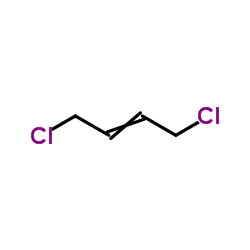
 CAS#:821-11-4
CAS#:821-11-4 CAS#:106-99-0
CAS#:106-99-0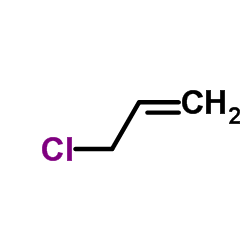 CAS#:107-05-1
CAS#:107-05-1 CAS#:64-17-5
CAS#:64-17-5 CAS#:201230-82-2
CAS#:201230-82-2 CAS#:310447-99-5
CAS#:310447-99-5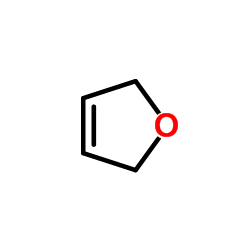 CAS#:1708-29-8
CAS#:1708-29-8 CAS#:7782-50-5
CAS#:7782-50-5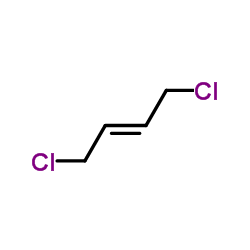 CAS#:110-57-6
CAS#:110-57-6 CAS#:5435-44-9
CAS#:5435-44-9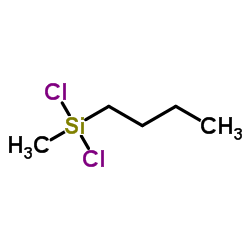 CAS#:18147-23-4
CAS#:18147-23-4 CAS#:19398-43-7
CAS#:19398-43-7 CAS#:689-97-4
CAS#:689-97-4 CAS#:2431-52-9
CAS#:2431-52-9 CAS#:2919-05-3
CAS#:2919-05-3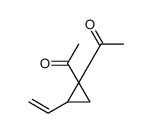 CAS#:28438-42-8
CAS#:28438-42-8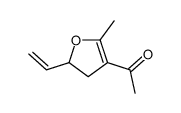 CAS#:75822-61-6
CAS#:75822-61-6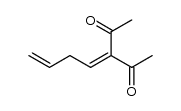 CAS#:58920-77-7
CAS#:58920-77-7 CAS#:58920-76-6
CAS#:58920-76-6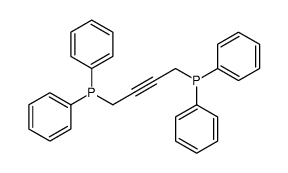 CAS#:27318-83-8
CAS#:27318-83-8